The Success of Engaging and Re-Engaging the Islamic Republic of Iran
 |
| U.S. Secretary of State John Kerry and Iranian Foreign Minister Mohammad Javad Zarif meet in 2016. Kevin Lamarque/Reuters |
"The most recent International Atomic Energy Agency (IAEA) report on Iran’s nuclear program paints a bleak picture of the agency’s current ability to monitor Tehran’s nuclear activities and the new Iranian government’s willingness to cooperate with the agency. Newly inaugurated Iranian president Ebrahim Raisi may think intransigence and ambiguity over the status of Iran’s nuclear program will build leverage in negotiations to bring Tehran and Washington back into compliance with the 2015 nuclear deal—which would reimpose on Iran the most stringent monitoring regime ever negotiated—but his administration’s failure to get off on the right foot with the agency is not only jeopardizing Tehran’s relationship with the IAEA, but also the prospects for restoring the accord.""IAEA Director General Rafael Grossi warned in the Sept. 7 report that Iran’s failure to fully cooperate and communicate with the IAEA “is seriously compromising” the IAEA’s ability to maintain continuity of knowledge about Iran’s nuclear activities, which is necessary if the agency is to resume the monitoring and verification activities required by the 2015 nuclear deal. The agency’s confidence that it can maintain that knowledge continuity “has now significantly further declined” and will continue to do so “unless the situation is immediately rectified by Iran,” the report says."Kelsey Davenport and Julia Masterson, Arms Control Association"Although our stance on nuclear weapons based on the supreme leader's explicit fatwa regarding nuclear weapons being forbidden is quite clear, Fakhrizadeh created this system and his concern wasn't just the defence of our own country."Fereydoun Abbasi-Davani, former head, Iranian Atomic Energy Organization"Our demands are clear.""Other parties and especially Americans should decide whether they want this deal to be revised or not.""The United States should return to it and lift all sanctions."Iranian official
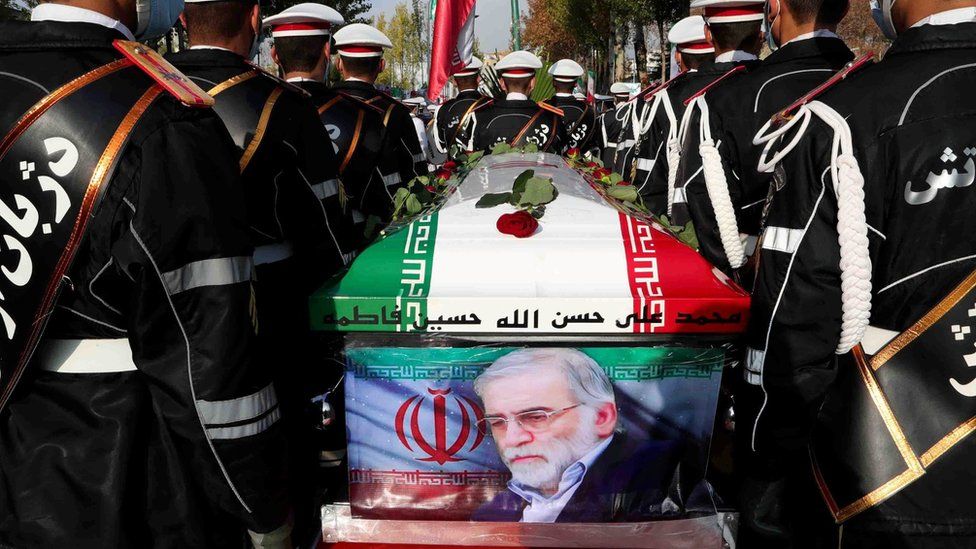 |
| Iranian nuclear scientist Mohsen Fakhrizadeh was killed in an ambush near Tehran Reuters |
On the one-year anniversary of the targeted killing of Iranian chief nuclear scientist Mohsen Fakhrizadeh, by Israel's Mossad spy agency, in an effort to delay the Islamic Republic's steady march to achieving the wherewithal to build nuclear weaponry, the former head of the Iranian Atomic Energy Organization, Fereydoun Abbasi-Davani, divulged that a "system" was in place by Iran to develop an atomic bomb. This is the theistic regime that time and again has expressed its end goal as the destruction of the State of Israel.
The State of Israel is just as determined to head off the threats posed by a malign regime seeking to dominate the Middle East, in the process creating a formidable grouping of like-minded states that include Syria and Qatar, and its proxy Shiite militias, Hezbollah in Lebanon, the Houthis in Yemen, and the Sunni Hamas terrorists governing Gaza, all dedicated to aiding Tehran's goal of extinguishing Israel from the Middle East.
While Iranian officials declared time and again its intention to destroy Israel, it also maintains itself to be innocent of plans to build nuclear facilities for any reason other than civil purposes; a country rich in oil, ostensibly seeking other means of energy production, such as nuclear energy. The paradoxical anomaly of Iran shipping oil off to China and Venezuela while itself producing nuclear energy for interior consumption is the very image of covert subterfuge, a clumsy cover for its nuclear ambitions.
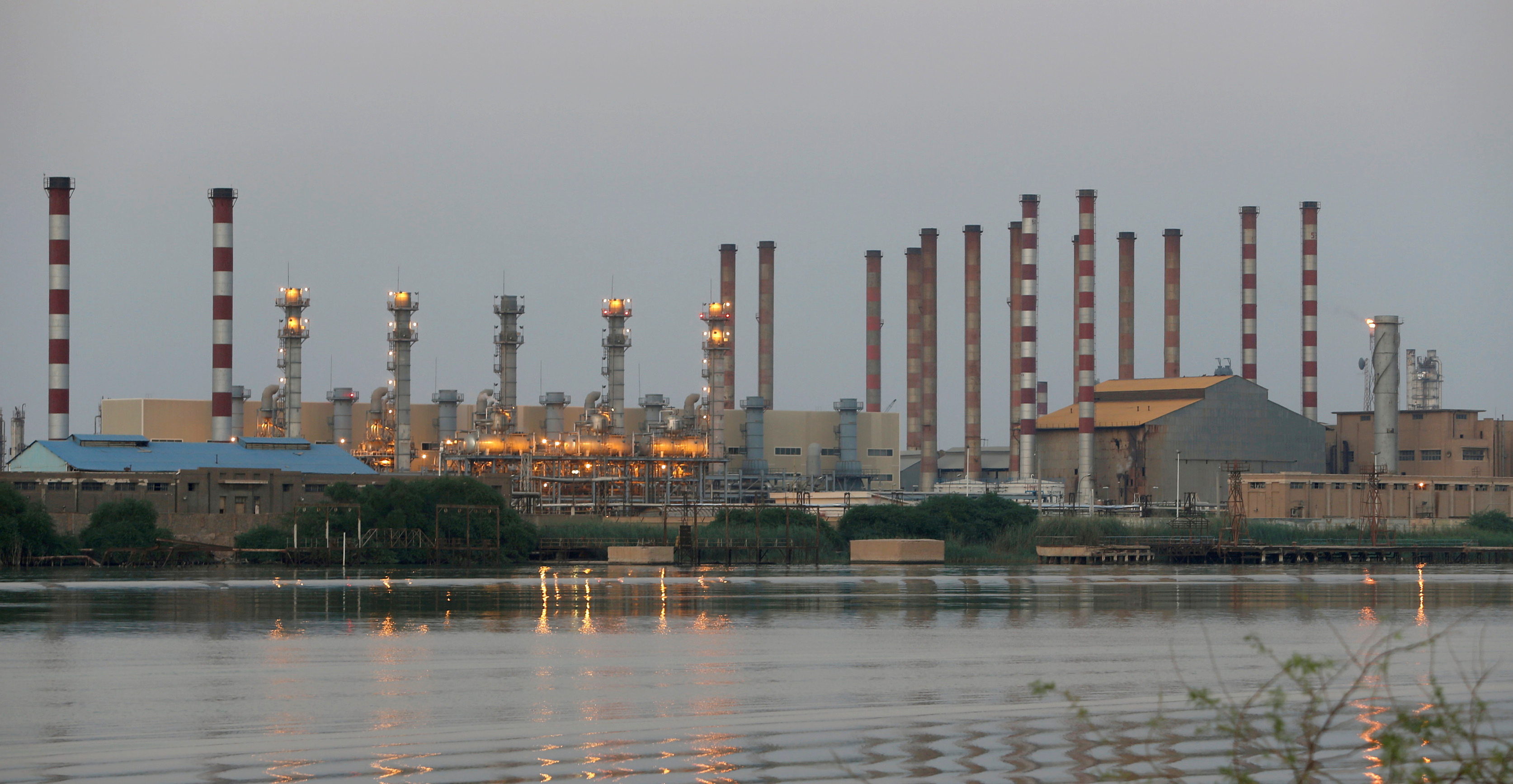 |
| A general view of Abadan oil refinery in southwest Iran, is pictured from Iraqi side of Shatt al-Arab in Al-Faw south of Basra, Iraq September 21, 2019. REUTERS/Essam Al-Sudani/File Photo |
Negotiations to restore the West's agreement with Iran over its nuclear ambitions in the nuclear agreement are being resumed. Iranian negotiators have stated the talks cannot resume without an agreement to remove all sanctions. The regime is innocent of conspiring to create nuclear weapons, they emphasize, just as has always been iterated and reiterated time and again. Iran has been unfairly targeted with suspicion over its nuclear programs.
Yet although Iranian authorities assured the world it had no intention of acquiring nuclear weapons, citing a fatwa issued by Ayatollah Ali Khamenei, that would prohibit the development of nuclear weapons because only civilian purposes for nuclear power was envisioned by the state, research went beyond that civilian purpose with the intention of turning the Republic's long-term plans into a short-term reality with a military purpose. It took a truly naive mindset to believe the regime had no military purpose for their enrichment of uranium.
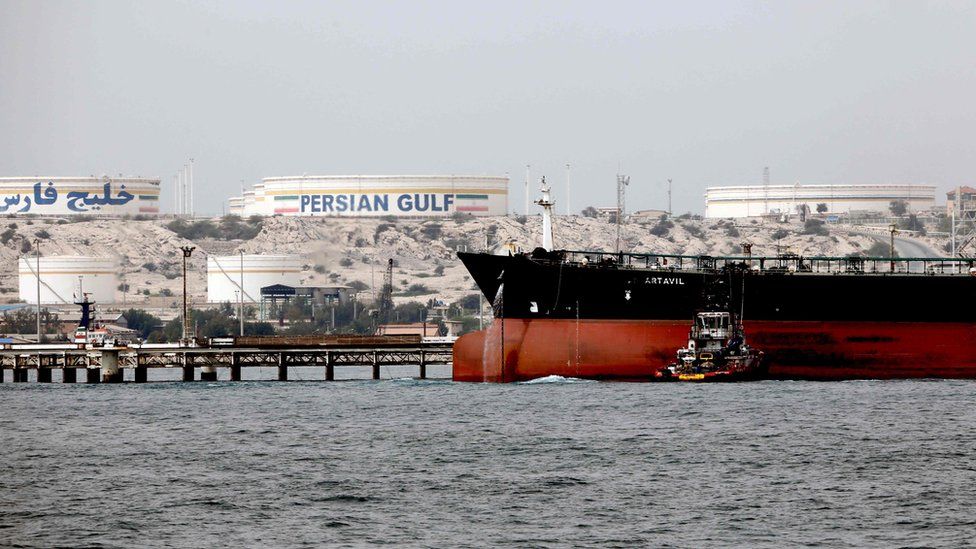 |
| Iran's oil exports - the government's principal source of revenue - were hit by the reinstated US sanctions AFP |
The Islamic Republic News Agency aired the interview with the former nuclear chief that effectively undermined official denials that the Islamic Republic's nuclear research was for peaceful purposes only, and did so just before the re-start of talks. In the close aftermath of the original signing of the agreement that appeared on the surface to satisfy all sides; the West that it had managed to 'contain' Iran's future nuclear research and uranium enrichment for a year; the regime that it had managed to hoodwink the West.
The issue of conventional military arms was never discussed as part of the agreement, and it took no time for Iran to develop technically advanced ballistic missiles whose only real purpose would be to carry a nuclear warhead. Iran's currying of terrorist groups, its interference with the affairs of other Middle East countries, its instructions to Hezbollah to mount terrorist attacks abroad continued, as did its involvement in Syria's civil war.
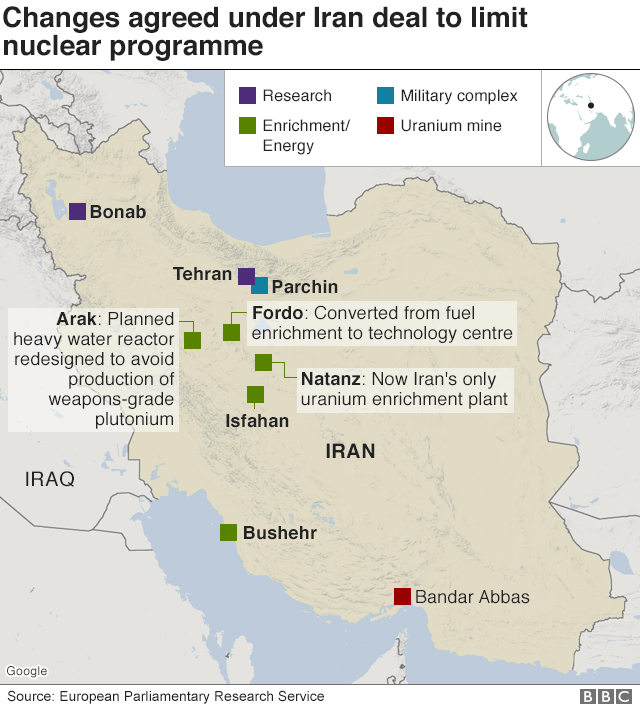
Iran had at first denied preparedness to meet directly with the United States under its new hard-line president Ebrahim Raisi, accused by Iranian expatriates and human rights groups of having been responsible for violent human rights abuses on his own account. Former President Donald Trump had abandoned the agreement, stating it failed to limit Tehran's nuclear program, and he was certainly correct on that score. Tehran never did stop enriching uranium to a point far exceeding what it would need for peaceful civilian purposes.
It has now stockpiled highly fissionable uranium, close to what it would take to produce atomic bombs; its stockpile enriched to 60%, aiming for 90%, a level of enrichment that has one purpose only; the production of nuclear weapons. It has far outpaced the agreement-allowable uranium enrichment not to have exceeded the 3.67 agreed-upon limit reflecting the 2015 agreement. Experts emphasize no legitimate applications exist for the high levels of enrichment that Iran has achieved.
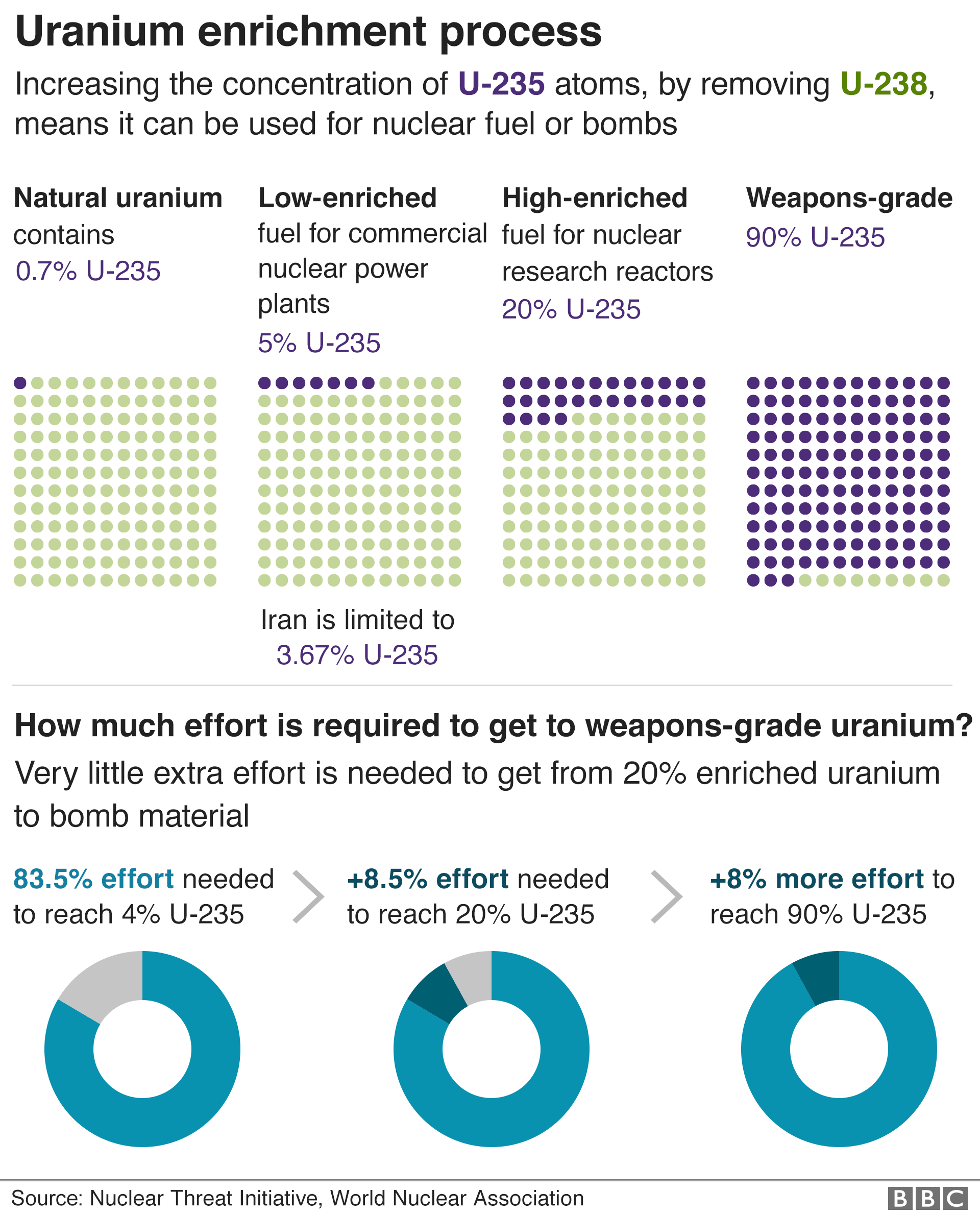 |
Labels: Islamic Republic of Iran, Nuclear Agreement, Nuclear Arms, Shiite Clique, Terrorist Militias, Threats, Uranium Enrichment
0 Comments:
Post a Comment
<< Home